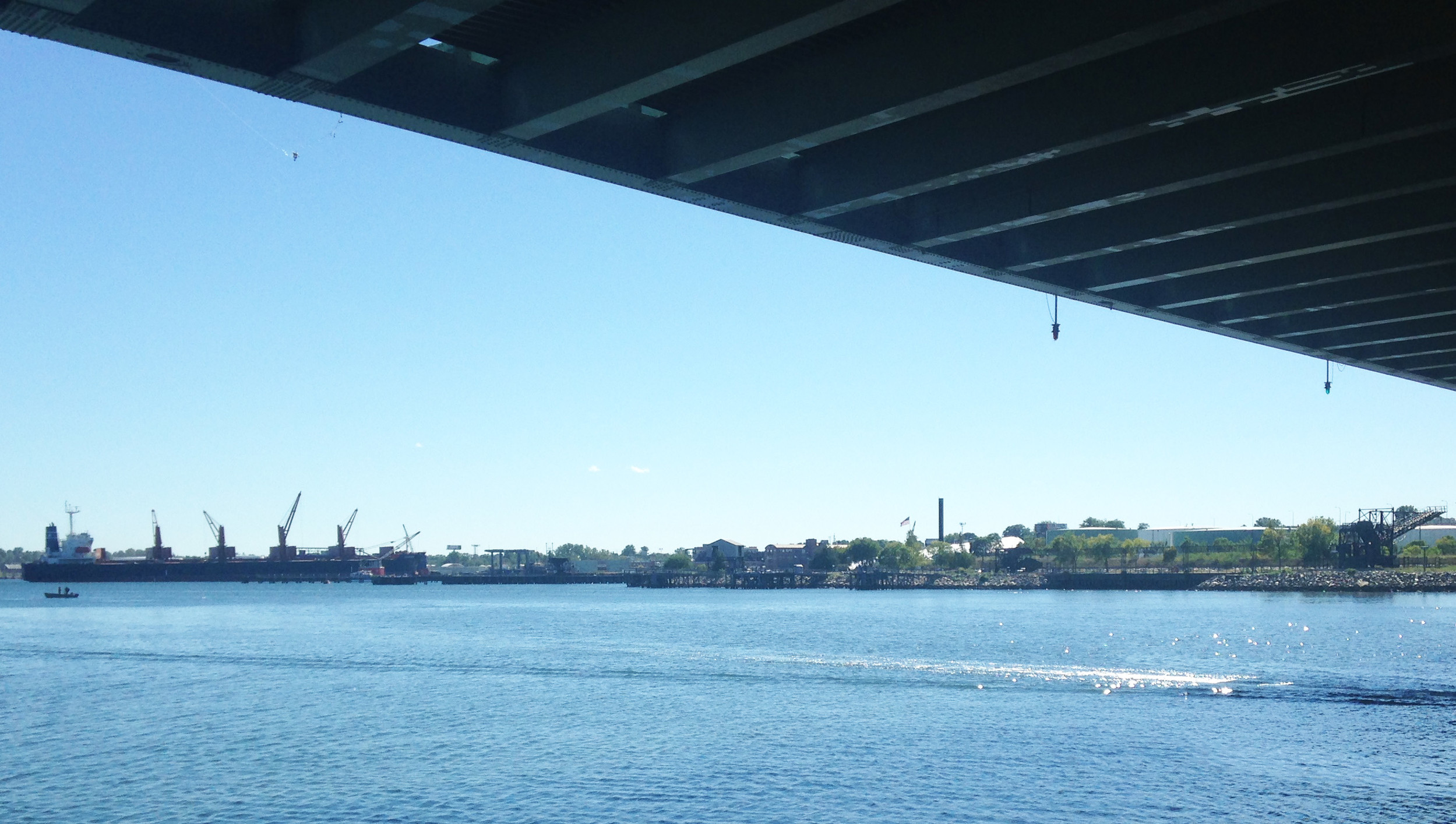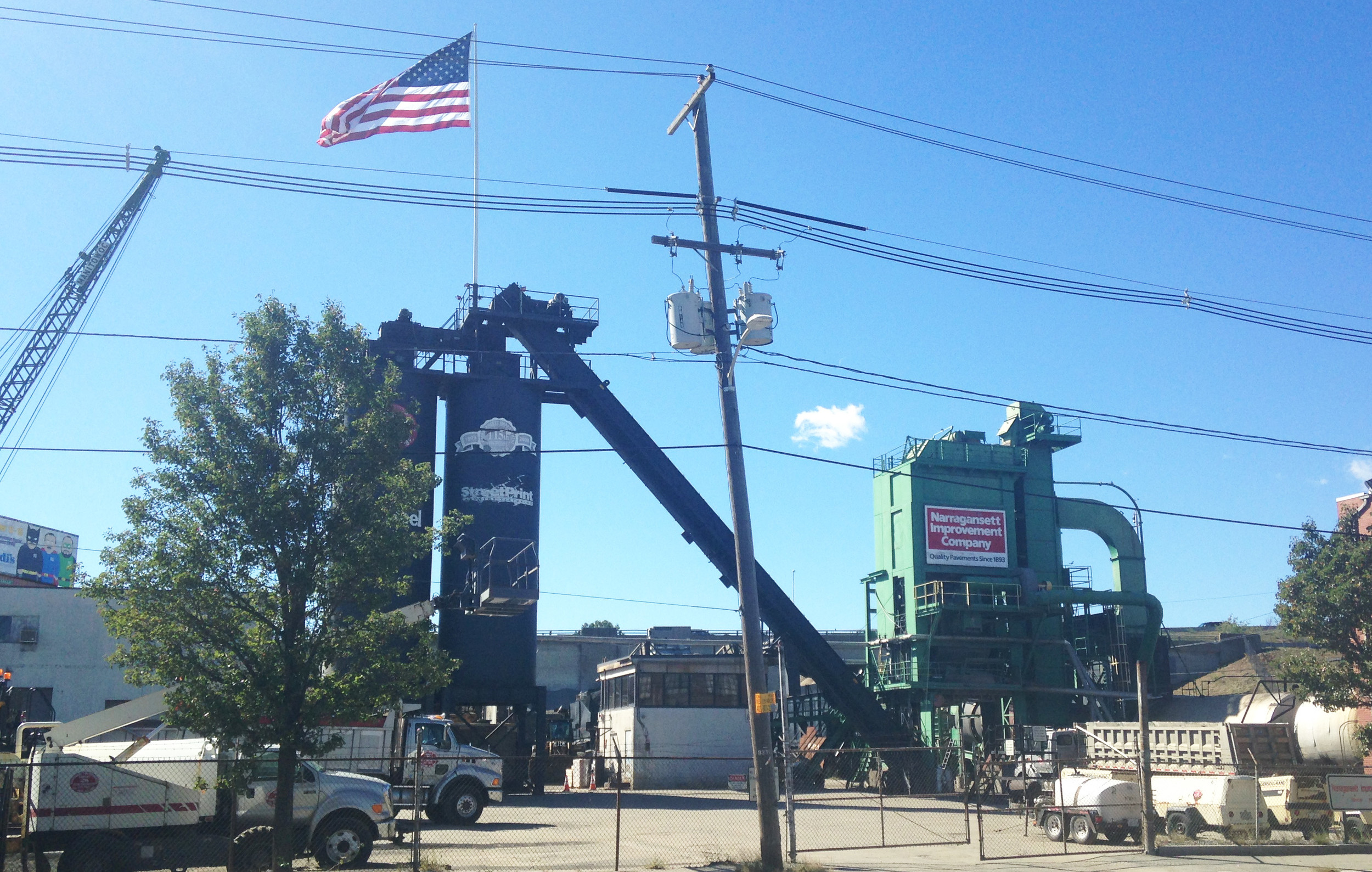The courage to speak out
When residents detect a pungent chemical smell in the air, what do they do?
When we go on vacations, we often try to find those places that have a resonance with the natural world – the beach, the ocean, the lakes, the mountains, where the nighttime skies offer an unobstructed view of the Milky Way.
Such adventures allow us to experience a kind of peaceful coexistence with the world, even if it is a human construct of cause and effect. When the air we breathe, the water we drink and bathe in, and the food we consume is contaminated, we are thrust back into the reality faced by many poorer communities as a burdensome disparity of everyday life.
It becomes harder to market Providence as a center of innovation if there potential environmental hazards exist that are being ignored.
PROVIDENCE – Recently, when residents detected a pungent petroleum odor that was hanging in the air like smog over their Foxpoint neighborhood, repeatedly, for many days during the summer months, causing a burning sensation in their eyes and throats, they contacted state authorities to urge them to investigate.
First, they called the R.I. Department of Health; in turn, the health agency referred them to the R.I. Department of Environmental Management.
In a conversation with DEM, when one of the residents asked the agency to investigate the pungent petroleum odor, the DEM representative asked if the resident could pinpoint the potential source.
The resident told DEM that they were unsure of the source, explaining that it appeared to be emanating from the industrial area in the vicinity of the IWay Bridge, which connects Route 95 and 195.
Reaching out
What does a citizen do when confronting an alleged environmental hazard that could prove injurious to public health? Good question.
One of the residents reached out to ConvergenceRI. In turn, ConvergenceRI reached out to ecoRI News, the best source for environmental reporting in Rhode Island, to ask if they would consider working together on a collaborative story.
Listening to citizens
The lesson history often teaches us, if we are willing to listen, whether it is in Love Canal in the 1970s or in Flint, Mich., 40 years later, is a fundamental truth: it is ordinary citizens speaking up as a community – and demanding that reticent and reluctant government officials take action to protect the public health of the community – that will force the issue out into the open.
Ordinary citizens are the ones living on the front lines, who much like the character of Miss Clavell in Madeline, sense that “something is not right.”
And, sometimes, it is the legal pursuit of the culprits that helps to preserve the public health, captured in the phrase coined by environmental lawyer and activist Victor Yannacone in 1970, “Sue the bastards.”
Pursuit of the facts
ConvergenceRI first reached out to DEM to ask if the agency had received any recent complaints about pungent petroleum orders in the Fox Point neighborhood and surrounding areas; the DEM representative said that no such complaints had been received.
Next, ConvergenceRI reached out to a number of epidemiologists and pubic health experts to ask what procedures should a resident follow in reporting and tracking a potential public health threat.
To Joseph Braun, assistant professor of Epidemiology and Epidemiology Master’s Program Director at the Brown University School of Public Health, ConvergenceRI asked:
A couple of folks have contacted me regarding a pervasive odor of petroleum in their Wickenden Street neighborhood, apparently coming from somewhere across the river, but they have been unable to identify the source.
The residents report that they have made a number of reports to the Department of Environmental Management about this, but I was wondering, from a scientific, epidemiological standpoint, what are the best ways to approach investigating this?
Given that citizens are often on the front lines of reporting environmental hazards, sometimes detected by smells, what should they do?
• Keep a record of times and places where the petroleum odor has occurred?
• Encourage neighbors to do the same thing?
• Work with local scientists to develop protocols?
Braun responded: “The first two things you propose would be reasonable first steps to determining the source of the smell. There are lots of reasons for funky smells, so it can be a difficult thing to pin down. Until there is something more concrete in terms of a source, it is hard to know what protocols to employ for assessing potential exposures.”
What the public health experts said
ConvergenceRI also reached out to a number of public health experts about what a resident should do.
One suggested that, in the future, a resident should call police in the town where the noxious smell is occurring, just to make sure that there is a record of the report.
Although R.I. DEM will ultimately need to decide whether or not to investigate, the public health expert said, having an independent agency such as the police record the complaints may be important somewhere along the path to getting an answer.
Another public health expert suggested that it would be important for numerous people to make calls to the DEM, in order to give the complaint more weight.
A third public health expert suggested that given that it appeared to be an airborne contaminant, requests should be made to DEM to receive copies of all air quality permits in the area in question, as well as any violations. The process to do that could take some time, the expert said.
What the citizens advocacy group said
ConvergenceRI also reached out to Save The Bay, a citizens’ advocacy group focused on the protection of Narragansett Bay, about what were the best activities for citizens to follow.
Cindy Sabato, director of communications at Save The Bay, suggested the following: “Keeping a record of times and places where a possible pollution event has occurred is a great idea, and provides the responding agency with data it can use to investigate the issue.”
The more individual people or households, Sabato continued, “who keep notes on times and places of possible pollution, and the more people or households that complain separately, the better, in terms of communicating a sense or urgency and citizen concern about a possible problem.”
Sabato said that working with government agencies is a critical component: “When Save The Bay suspects a water pollution event, or a community members contacts us about a suspected pollution event, we directly contact R.I. DEM or whatever is the most appropriate agency or group, and then work with them in whatever way is appropriate.”
In this particular case, Sabato suggested reaching out to the DEM Air Quality Office or contacting the agency emergency response team. [ConvergenceRI called twice and left messages; ConvergenceRI planned to follow up this week.]
What an environmental scientist said
ConvergenceRI also spoke with a local environmental scientist who suggested a possible alleged source of the pungent petroleum odor as well as identifying a possible alleged airborne contaminant.
The airborne contaminant that the scientist suggested that ConvergenceRI ask the state agencies to investigate is called polycyclic aromatic hydrocarbons, or PAH, which are present in products made from fossil fuels, including asphalt, according to a fact sheet compiled by the Illinois Department of Public Health. Further, the agency fact sheet identified potential short-term symptoms of exposure to PAH to include eye irritation, nausea and vomiting.
Long-term exposure has been linked to a number of serious health problems.
One potential alleged source of the pungent odor to investigate, according to the scientist, might be the Narragansett Improvement Co. located on Allens Avenue, which is a leading hot mix asphalt plant serving Rhode Island and Massachusetts, according to the company’s website.
“When you smell polycyclic aromatic hydrocarbons,” the scientist told ConvergenceRI, “it’s what you smell when you smell asphalt.”
Often, when the scientist drove past the facility, the scientist told ConvergenceRI, “I can really smell it.”
There could be, of course, numerous other potential sources of the pungent petroleum order emanating from industrial properties along Allens Avenue. It would be up to the state agencies to determine if there are emissions of PAH occurring, and if they exceed regulatory standards, and where such emissions were coming from.
Asking the questions
ConvergenceRI reached out to the Narragansett Improvement Company to see if there had been any complaints received or if the company monitored emissions of polycyclic aromatic hydrocarbons on site.
The owners had left for the day, and the representative said that they would get back to ConvergenceRI on Monday morning. The representative also said that she knew of no such problems.
On the company’s website, under the heading, “Company Commitment to Safety,” it says: “Narragansett strives to provide a safe work environment for its employees, customers and the public on all our projects. All employees are OSHA 10 certified, [with a] comprehensive safety program emphasizing employee commitment to a safe work environment.
[Editor’s note: ConvergenceRI will update the story this week with any additional information from Narragansett Improvement Company or from DEM.]
A story or a solution?
The scientist recommended that the residents call DEM, but to complain separately. The scientist also recommended that the Foxpoint residents might want to contact a group such as the Environmental Justice League, which is active in South Providence addressing the burdens from health disparities caused by environmental pollution.
The burden of speaking out
For the residents who first raised the complaint, there comes with it the burden of speaking out, with the courage to confront agencies and to be persistent.
One of the residents recently told ecoRI News that the chemical smell has been lingering in the neighborhood for a number of months.
“It can be oppressive, burning your eyes and throat,” the resident said. “Most days you experience it, like smog, it’s just sitting there, you can't escape it, even if you close your windows.”
Editor's Note: The good news is that DEM has said that it was investigating the complaint; the not-so-good news is that DEM does not currently test for polycyclic aromatic hydrocarbons as part of its permitting process. The pungent chemical odor was prevalent again this week, according to residents.







